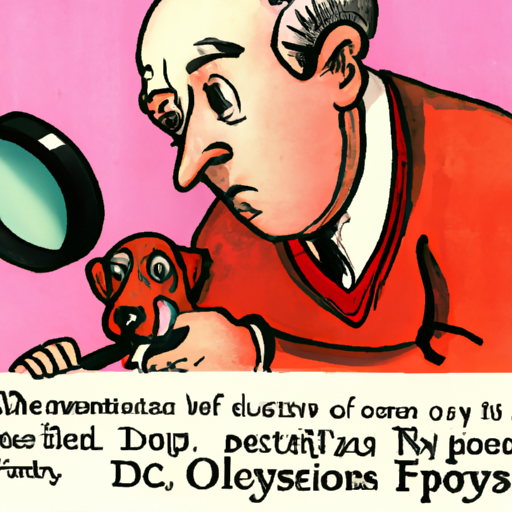As a loving and responsible pet owner, you may often find yourself asking this question: “Why are my dog’s eyes puffy?” There are numerous potential causes, from minor allergies to more serious conditions like glaucoma. Understanding and recognizing the signs of these issues can help you take better care of your four-legged friend.
Table of Contents
- Allergies and Irritants
- Infections
- Eye Injuries
- Serious Health Conditions
- Treating Puffy Eyes
- When To See a Vet
- Frequently Asked Questions
Key Takeaways
- Puffy eyes in dogs may result from allergies, irritants, infections, or injuries.
- More serious health conditions, like glaucoma and conjunctivitis, can also cause eye puffiness.
- Treatments range from simple home remedies to vet-prescribed medicines.
- Always consult a vet when symptoms persist or worsen.
Allergies and Irritants
Just like humans, dogs can also suffer from allergies caused by various elements. Whether it’s pollen, dust, or certain types of food, these allergens can cause your dog’s eyes to become itchy and inflamed, leading to puffiness. In addition to allergies, irritants like smoke or harsh cleaning chemicals can also lead to similar symptoms. Regularly cleaning your dog’s living area and avoiding potential allergens can help prevent such issues.
Here’s an insightful article that elaborates on how allergies in dogs manifest and how they can be managed.
Infections
Eye infections are common in dogs and can lead to puffy and red eyes. The most common eye infection in dogs is conjunctivitis, also known as pink eye. Other symptoms of eye infections include discharge, squinting, and excessive tearing. If you suspect an infection, it’s crucial to consult with a veterinarian for proper diagnosis and treatment.
Eye Injuries
Dogs love to explore, and in doing so, they can sometimes injure their eyes. Whether it’s a scratch from a thorny bush or a poke from a sharp object, any injury to the eye can cause swelling and puffiness. If your dog’s eye looks different than usual or if they seem uncomfortable, it’s important to seek veterinary care as soon as possible.
Serious Health Conditions
While many causes of puffy eyes are relatively minor, some more serious health conditions can also lead to this symptom. Glaucoma, a condition that results in increased pressure in the eye, can cause puffiness. Additionally, diseases like Canine Distemper can cause a variety of eye symptoms, including puffiness. These conditions are serious and require immediate veterinary attention.
Treating Puffy Eyes
Depending on the cause of your dog’s puffy eyes, treatments can vary. For mild irritations or allergies, you might be able to use a simple saline solution to rinse your dog’s eyes. Over-the-counter antihistamines can also help with allergies, but always consult with a vet before administering any medication. In the case of infections or injuries, your vet may prescribe antibiotics or anti-inflammatory medication.
Here is a useful guide on how to safely clean your dog’s eyes at home.
When To See a Vet
If your dog’s eyes remain puffy for more than 24 hours, or if they exhibit other symptoms like loss of appetite, excessive tearing, or changes in behavior, it’s time to consult a vet. It’s always better to err on the side of caution when it comes to your pet’s health.
Frequently Asked Questions
1. Can puffy eyes in dogs be prevented?
Yes, regular cleaning and vigilant care can prevent many cases of puffy eyes. This includes protecting your dog from irritants and potential allergens, and promptly treating any eye injuries.
2. How can I tell if my dog’s puffy eyes are serious?
If your dog’s puffy eyes are accompanied by other symptoms like loss of appetite, lethargy, changes in behavior, or if the puffiness persists for more than a day, it’s best to consult a vet.
3. Can I use human eye drops on my dog?
Never use human medication on your dog without consulting a vet. Some human eye drops may contain ingredients that are harmful to dogs.
Remember, your dog’s eyes are a window to their health. By paying close attention to any changes and taking swift action, you can ensure your dog’s eyes remain bright and healthy. Here’s another resourceful article about eye care for dogs that can provide more information on how to keep your dog’s eyes healthy.



